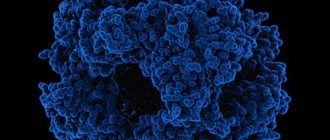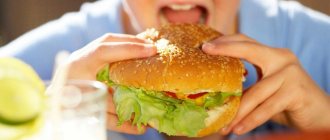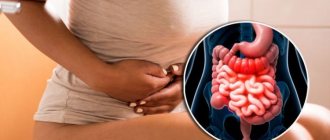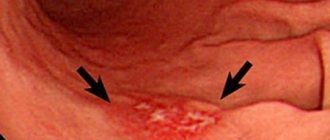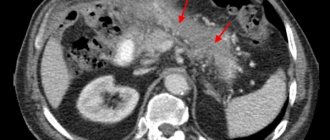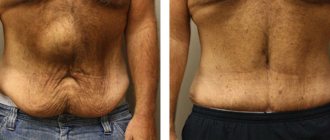From this article you will learn:
- Briefly about the nature of hunger
- Associated symptoms of hunger after eating
- 10 reasons why you feel hungry after eating
- 5 Lifestyle Factors That Make You Feel Hungry Even After Eating
- Consequences of constantly feeling hungry after eating
- Who to turn to for treatment of acute hunger
Some people eat completely normally, but still constantly feel the urge to snack. Feeling hungry after eating indicates that there is a problem in the body. Psychological or physiological in nature - this is the second question; the main thing is to pay close attention to this. If you start this process, problems with excess weight and the gastrointestinal tract will become your active companions.
Next, you will learn about the main reasons that cause you to feel hungry even after a meal. We'll tell you which lifestyle factors may often trigger this need, and where to turn for treatment. Only useful information and nothing superfluous.
Briefly about the nature of hunger
Lack of nutrients in the body causes a feeling of hunger. It is formed during the operation of such important vital systems of the body as neuro-reflex and hormonal.
The nature of hunger
The complex collection of structures in the central nervous system responsible for the digestive process, as well as the search, selection and consumption of food, is called the food center. Its key link is the nuclei of the hypothalamus, located in the diencephalon. The feeling of hunger appears when they are irritated, lack of appetite and refusal to eat - when these nuclei are destroyed.
Natural reasons can cause an increased feeling of hunger, but it happens that this feeling may turn out to be false.
Hunger is a subjective feeling of emptiness in the stomach and an instinctive need to eat.
- True hunger is felt as a result of the body's lack of important nutrients - including fats, amino acids, and glucose. It appears as a result of prolonged psycho-emotional stress or with increased physical activity, for example when playing sports.
- Imaginary hunger is a false psychological state that is very common nowadays. It has a huge number of varieties, often associated with human habits.
This is interesting!
“Intermittent fasting: schemes, menus, rules” Read more
If you are accustomed to eating by the hour, then you stop attaching importance to your feelings and do not track whether you are really hungry - but simply eat automatically because the time has come. Another common habit is watching TV or reading books while eating. The desire to rest after any intense activity leads to thoughts about food. The feeling of hunger can also be caused by a feeling of sadness, boredom, blues, and also, conversely, by the desire for a holiday.
- Interruptions in the functioning of hormones and improper neuro-reflex regulation, caused by certain diseases, arouse a feeling of continuous pathological hunger.
Symptoms of the problem
Hypoglycemia can be recognized by a number of characteristic symptoms. So, says the endocrinologist, when the glucose level decreases to the established minimum thresholds and even lower, the following signs appear:
- weakness;
- severe fatigue;
- decreased attention or behavior changes;
- dizziness;
- severe sweating;
- increased heart rate;
- tremors (involuntary vibrations) of the hands;
- leg cramps;
- loss or clouding of consciousness.
If such a problem occurs at night, nightmares may develop, says Oksana Dyukareva.
Dangerous zucchini. What foods cause spikes in blood sugar levels Read more
Associated symptoms of hunger after eating
A strong, persistent feeling of hunger after eating can be accompanied by the following symptoms:
- short-term stomach cramps alternating with periods of relaxation;
- sensation as if sucking in the pit of the stomach;
- rumbling in the stomach;
- periodic feeling of nausea, which may intensify or disappear for some time after eating food;
- unexpected outbursts of emotions and mood swings.
How to check?
“Methods of self-monitoring of blood glucose at home using glucometers are now widespread. But, unfortunately, such devices may have measurement errors, and it is not always possible to see critical blood glucose levels. Therefore, if you experience repeated symptoms of hypoglycemia and low blood sugar levels during any measurement, it is better to consult an endocrinologist for examination and clarification of the reasons,” the doctor advises.
Hypoglycemia is a frequent companion of people with diabetes mellitus, especially with a long history, as well as people receiving insulin or drugs that stimulate increased secretion (release) of insulin.
Insulin and penicillin: 5 discoveries that changed the world Read more
Dietary supplements inexpensively
Today everyone knows about bulimia. There is hardly a person who has not heard about this condition - a pathological feeling of hunger, which forces the patient to absorb food in monstrous quantities and deprives the ability of self-control.
Free consultation right now!
Online consultation with a specialist on your issue!
License number: LO-77-01-019036
But often this disorder is associated with a lack of willpower, dissolute behavior or “fashion for losing weight.”
Each of these statements is wrong: bulimia is an eating disorder caused by mental or physical disorders. And a person suffering from this condition can almost never influence his “wolf hunger.”
Weakness and drowsiness
Patients often complain that they want to sleep, but do not have enough strength for normal life activities. The combination of weakness and drowsiness is possible for the following reasons:
- lack of oxygen. The urban atmosphere is poor in oxygen. Constant stay in the city contributes to the development of weakness and drowsiness;
- decrease in atmospheric pressure and magnetic storms. People who are sensitive to weather changes are called weather dependent. If you are weather dependent, bad weather may cause your weakness and drowsiness;
- avitaminosis;
- poor or unhealthy diet;
- hormonal disorders;
- alcohol abuse;
- chronic fatigue syndrome;
- vegetative-vascular dystonia;
- other diseases (including infectious ones - in the early stages, when other symptoms have not yet appeared).
Possible diseases
Most often, morning sickness on an empty stomach may indicate the presence of the following diseases:
- Gastritis (stomach ulcers) is an extremely common disease that can cause not only morning sickness, but also a number of other extremely unpleasant symptoms. This occurs due to inflammatory processes in the duodenum. The patient may also suffer from: burning, bloating during and after meals, heartburn.
- Inflammation of the pancreas (pancreatitis) is also characterized by nausea in the morning, as well as after eating fatty or fried foods. This disease is easily confused with gastritis due to the similarity of symptoms, but with pancreatitis the patient begins to have problems with stool and an unpleasant, bitter taste in the mouth.
- Appendicitis - nausea will most likely fade into the background after unbearable pain in the right side begins to appear.
- Inflammation of the gallbladder (cholecestitis) is a disease that can also be accompanied by morning attacks of nausea. Associated symptoms are pain in the right hypochondrium and excessive gas formation.
Causes
Just left the table, and your hand again reaches for the refrigerator, what could you throw into your insatiable womb? So what are the possible reasons for constantly feeling hungry, even after a hearty meal? The main ones are non-compliance with the diet and nutritional rules, although health complications cannot be ruled out. More details below.
Problems with nutrition and rhythm of life
Complete refusal or meager breakfast
Morning meal is very important for a person. It is at the beginning of the day that metabolic processes are launched and the functions of each organ are activated. The nutrients received normalize the amount of sugar in the blood, so you stay full for a long time and can work calmly without experiencing discomfort.
Not enough water
The body needs water for digestion processes. And it doesn’t matter that you ate soup, meat with gravy and washed it all down with compote. This liquid doesn't count. You need simple water (spring water is better, but if you don’t have it, regular, boiled water will do). It is necessary for removing salts, toxins, and deposits, which are especially abundant after eating. And often the body, in order to pay attention to the lack of water, signals by eating. This especially happens after eating. Remember this. After eating, drink a glass of plain water after 20 minutes, and the false emptiness inside will go away.
You need to drink a lot during the day, at least 2 liters, so that unnecessary things are carried away with water and cleansing occurs.
Eating prepared foods and semi-finished products
Ready-to-eat products are packed in bright little bags and bags stuffed with aroma and taste enhancers. That is, a complete set of chemicals that will not fill you up.
Ideally, cook it yourself. Then you will always know what is “floating” in your pan. But if this is not possible, try to choose from ready-made products those that are least harmful (if possible).
Ordinary food, without any frills, will bring more satiety than a “sophisticated” culinary miracle.
Diet too sweet
Not only do sweet drinks and baked goods contain an incredible amount of calories that are deposited on the sides and waist, but there is also added sugar, of which there is a lot, and corn syrup (an unhealthful substance) depresses the brain areas responsible for appetite. There are no signals that you are full. The consequence is a constant desire to eat more.
It is worth reducing your sugar intake as much as possible, in particular dessert drinks.
Strict diet
You shouldn’t force yourself into a narrow framework, not allowing you to try an extra piece. Exorbitant prohibitions only make the desire to eat something tasty only grow. It is necessary to reconsider the meal schedule so that there are at least three of them during the day. And if you still can’t stand it from lunch to dinner, add an afternoon snack.
Avoid snacking on the go, but cutting out food altogether is a bad decision. Without preparation, this can ruin your stomach. It's better to take the path of healthy change slowly.
Monotonous food
Nutritious, varied foods bring pleasure and fill you up more quickly. Make sure that you have proteins, fats and carbohydrates on your table without bias towards one of them. Also, if the menu has the same dish every day, the body will rebel and refuse to give signals of satiety, wanting change.
Alcohol
Abundant “libations” slow down the work of saturation centers. Appetite increases and, what is most dangerous, a person begins to eat everything uncontrollably, forgetting about the diet and the desire for a healthy lifestyle. The bar falls, all achievements become a thing of the past. Therefore, if you want to become slim, lose extra pounds, and regain your attractiveness, then it is better to give up alcohol altogether.
Nocturnal lifestyle
In sleep, our body continues to live. Some functions are slowed down, others are activated. And there are processes that occur only at night.
Exclusively after sunset, the glands begin to produce melatonin, a hormone responsible for sleep.
What is he doing?
- promotes the effective functioning of the endocrine system;
- inhibits the aging process;
- helps adapt to time zone changes;
- increases immunity;
- creates an antioxidant effect;
- protects against stress, seasonal depression;
- stabilizes blood pressure, strengthens the cardiovascular system;
- participates in digestive processes;
- affects the amount of other hormones;
- has a beneficial effect on brain cells.
This is why it is important to fall asleep before midnight. The ideal time is 22 hours. During this period, the production of melatonin is activated, which helps maintain figure and beauty.
During its activity phase, it interacts with other hormones (ghrelin, leptin, insulin), which are responsible, along with other functions, for appetite and body fat. Ghrelin activates the desire to eat. Before eating, its level increases, and after eating it decreases. The less you sleep, the more you want to eat. Leptin causes satiety. Melatonin inhibits the production of ghrelin and complements leptin.
Melatonin is naturally produced only at night. As the illumination decreases, it becomes more abundant, we begin to chow, yawn, and dream of lying down on a pillow. Its increasing concentration motivates us to go to bed so as not to interfere with the night's recovery processes with untimely activity. Peak production is midnight. By this time it is advisable to sleep soundly.
A lack of melatonin results in accelerated aging, disruption of the fat burning process, leading to obesity, and accumulation of free radicals, which increase the risk of cancer.
This is why proper sleep patterns are important.
Constant stress
Eating troubles with sweets and tasty things is the body’s need for pleasure. The more experiences, the more actively the stomach asks for rewards.
The way out is to get rid of addiction, realizing that stress will not be eliminated with an extra piece of the pie. Achieve harmony in life.
Boredom
Often hands reach out for treats from idleness, just to have something to do. The mouth chews incessantly, although there is absolutely no physical need for this.
Planning your day will help you get rid of this situation. You must be busy all the time. Fill your days with exciting events: meet friends, create new projects, go to exhibitions, help others.
Thoughts about food will dissolve in a string of interesting things and worries.
Mental load
Intellectual work takes a lot of energy. With brain activity, blood glucose levels decrease. Therefore, having worked hard with your head, sometimes you experience emptiness in your stomach. But this is not a physiological need for all organs, but only for the brain. Such discomfort is easy to correct.
It’s enough to eat a spoonful of honey and crush some nuts, and the sensations will even out, you will feel completely fine.
Symptoms of diseases
When you feel hungry after eating, and this happens with frightening consistency, it’s a reason to worry. Regardless of whether you are a woman or a man, this behavior of the body can signal a developing disease. There is no longer any time for figure and extra pounds when it comes to health.
Be sure to pay attention to your health if you:
- a heavy meal does not bring a feeling of fullness. According to nutritionists, a full dinner should make you forget about hunger for at least five to six hours;
- in the afternoon it is especially difficult to resist the desire to eat, and in the evening it’s as if the gluttons attack;
- you are constantly thirsty, regardless of whether you have eaten salty foods or not.
The presence of these symptoms may indicate improper processing of sugar by the body and the risk of developing diabetes.
If you feel an insatiable, frequent desire to eat, your stomach hurts, or you are tormented by constant thirst, you should visit a doctor and check your blood sugar levels.
Hunger can be caused by genetic disorders. For some reason (there was a malfunction in the functioning of genes), the brain stopped receiving signals about satiety. He has a program running: “We need to eat!”, but there is no one to turn it off.
Hormonal changes can also affect the desire to eat. Many women know how difficult it is to control themselves during menstrual periods, and it seems that there is a hole in the “stomach” that cannot be filled with any culinary delights. Everything falls like into an abyss.
The problems listed above should be dealt with by a specialist; traditional methods and self-medication are powerless in this case.
Another difficulty that cannot be dealt with alone is deep mental disorders provoked by stress and depression. A person does not feel full due to nervousness, absorbing an enormous amount of food, sometimes to the point of nausea.
Lack of microelements and vitamins also activates the desire to eat. For example, the disadvantage:
- calcium causes a craving for eating lard, oil, fatty foods;
- sodium, chlorine - herring, pickles, anything with more salt;
- phosphorus, chromium, sulfur - provokes cravings for sweets.
If you notice that while following a proper diet, you often experience “emptiness” in your stomach, do not harm your body - undergo a medical examination and take the necessary tests.
Weakness and dizziness
Dizziness quite often occurs against a background of general weakness. A combination of these symptoms may occur in the following cases:
- anemia;
- cerebrovascular accidents;
- a sharp increase or decrease in blood pressure;
- oncological diseases;
- stress;
- in women - during menstruation or menopause.

